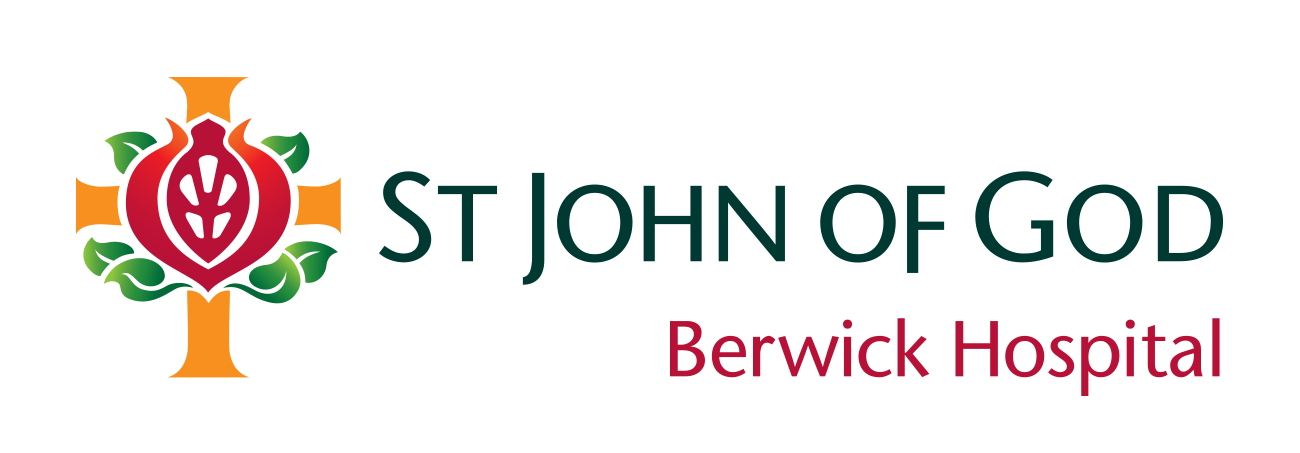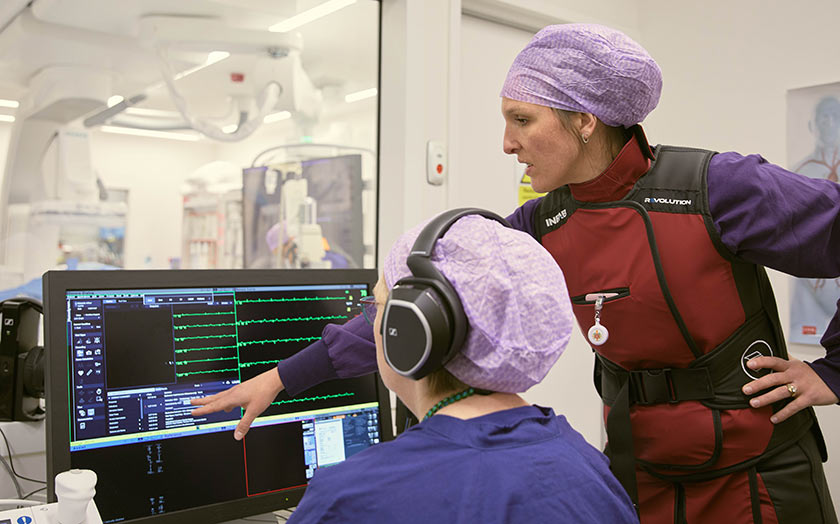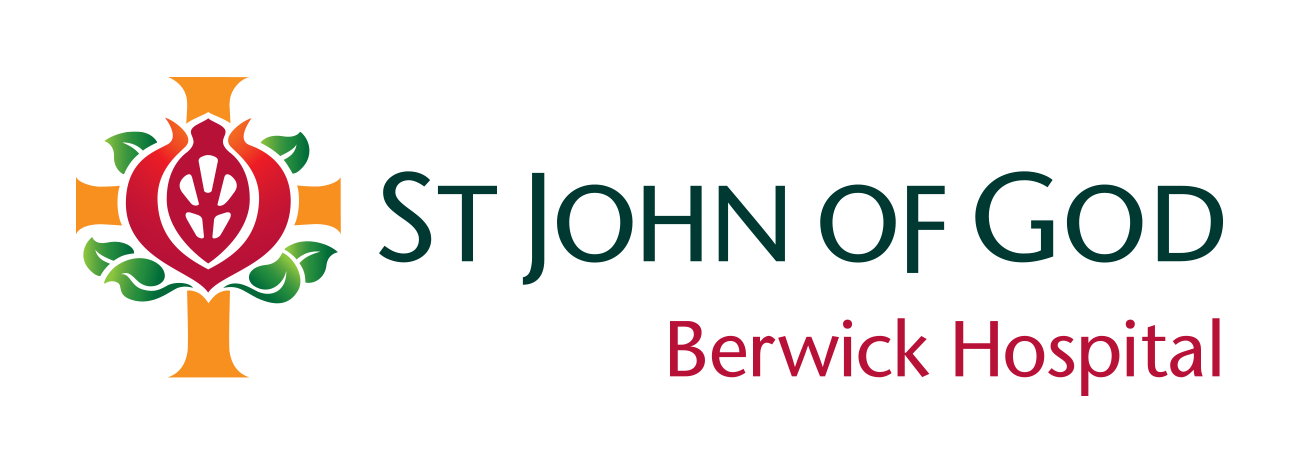- Our services
- Medical and surgical
- Cardiac services
 Our services
Our services
- Medical and surgical
-
- Allied health
- Cardiac rehabilitation
- Falls prevention and balance
- Chronic disease management
- Exercise physiology
- Inpatient rehabilitation
- Nutrition and dietetics
- Occupational therapy
- Oncology rehabilitation
- Orthopaedic rehabilitation
- Outpatient rehabilitation
- Pulmonary rehabilitation
- Physiotherapy
- Reconditioning rehabilitation
- Speech pathology
- Social work
- Community and youth
- Healthcare at Home
- Self-funded care
Cardiac services
Our cardiac services diagnose and treat heart-related conditions, such as heart attack, coronary artery disease, heart arrhythmia, valvular heart disease and heart infections.

Facing an issue with heart health can be overwhelming and scary. By choosing St John of God Berwick Hospital, you are choosing highly-specialised and expert care, from diagnosis through to treatment and recovery.
Our dedicated doctors and nurses offer holistic heart care and will listen to your concerns and provide specialised cardiovascular services and treatment.
If you want to check your heart health or are experiencing worrying symptoms, the first step is to visit your GP and ask for a referral to our Cardiac Services diagnostic clinic. Remember, if you are facing any acute symptoms or in an emergency, always call 000.
Cardiac Services - diagnostic clinic
If you are noticing worrying symptoms or have a family history of heart disease, your GP may refer you to our Cardiac Services diagnostic clinic. The on-site clinic is managed by our team of specialist clinicians who will conduct a series of tests to determine the health of your heart.
Your results will be available quickly, within a week, and reports will be provided to your GP. If your results indicate further investigation or treatment is required, the team will support and guide you through the process. To learn more about accessing the Cardiac Services diagnostic clinic contact us on:
Phone: 03 8784 5600
Fax: 03 8784 5650
Email: [email protected]
Diagnostic tests
To diagnose a problem with your heart, your doctor may recommend an echocardiogram. This is a way of imaging your heart using ultrasound.
This is a way to record the electrical signals produced by your heart. A technician will place electrodes on your chest, attached to recording equipment. The results can lead to a diagnosis of common heart problems.
A Holter monitor is a device that you wear for a day or two that records all your heartbeats. It’s often used if an electrocardiogram doesn’t provide the answers the doctor needs to diagnose your condition.
A stress test shows how the heart works during physical activity. The patient will be asked to walk on a treadmill, while a health care provider watches their heart rhythm, blood pressure and breathing. Exercise makes the heart pump harder and faster. A stress test can show problems with blood flow within the heart.
When one of your cardiac arteries has become narrowed, your cardiologist can place a small balloon inside to open it up. Once the artery is opened, the cardiologist places an expandable metal tube called a ‘stent’ inside to keep the artery open. The balloon is removed and the stent remains in place.
Interventional cardiac services
If diagnostic tests indicate that treatment is required, our cardiac team will recommend the best course of treatment. This may include a variety of interventional surgical procedures.
Cardiac procedures
This is a technique using a contrast medium to outline blood vessels. The procedure may be done in a variety of ways, depending on the indications. Examples include coronary angiography, performed in the cardiac catheterisation laboratory, by an interventional cardiologist to examine the heart for blockages; peripheral angiography, done by a vascular surgeon also performed in a cardiac catheterisation laboratory, to look for blockages in the arteries to the lower limbs and CT angiography, performed by a radiologist in the X-ray department to look at a number of different organ systems.
Stenting involves stretching a narrowed area of the artery with a small cylindrical balloon. Once the narrowing has been stretched a stent is inserted (a fine mesh cylinder usually of stainless steel) that supports that part of the artery.
A minimally invasive procedure that assesses the electrical activity and conduction pathways of the heart.
A medical device that uses electrical impulses, delivered by electrodes that contract heart muscles, to regulate the heartbeat.
Cardiac rehabilitation
Cardiac rehabilitation is a specialist program designed specifically for people recovering from, or managing, a heart issue. Our cardiac rehabilitation care helps you transition back to a healthy and active life.
Learn more about cardiac rehabilitation.
Benefits of cardiac services
The benefits of accessing our cardiac services include:
- helping treat and overcome heart-related conditions
- potential for a better quality of life through improved physical and mental health and ability to go about your day-to-day activities
- education to help you make better decisions about your own behaviour such as diet or smoking to reduce the risk of future heart problems.
These benefits depend on your particular circumstances and require you to fully participate in necessary before and after care and management. You should consult a specialist in this area before deciding whether treatment is suitable for you.
You may be interested in
